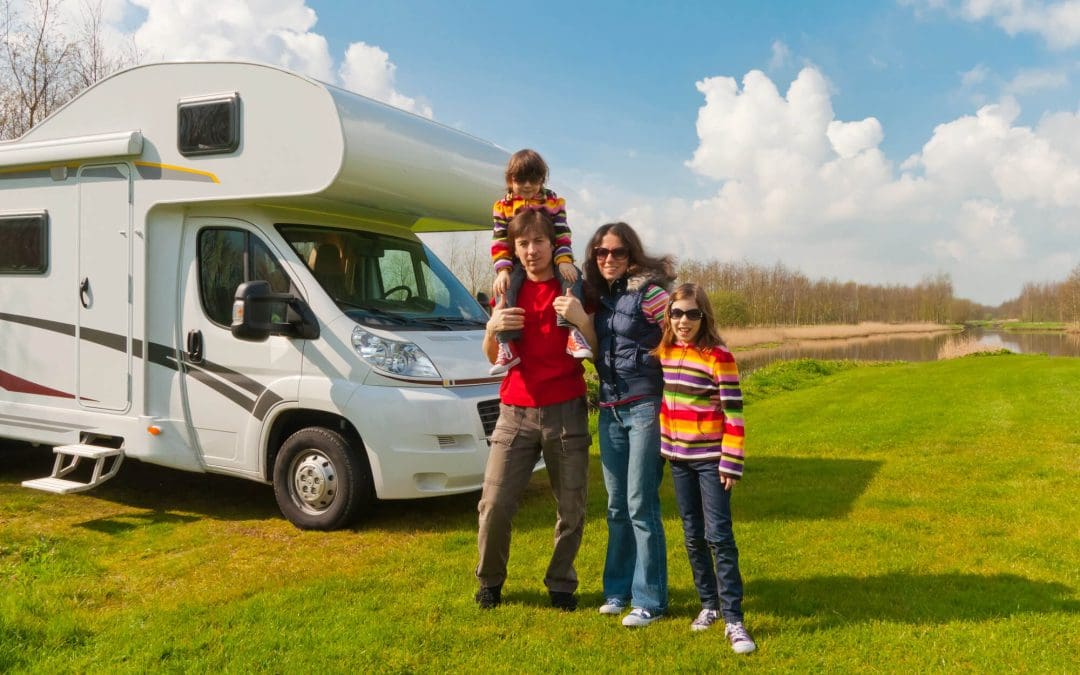RVing offers a sense of freedom and adventure that few other travel experiences can match. But staying safe on the road is key to fully enjoying the journey. Safety should always be a priority when RVing. Here’s how to stay safe while RVing without sacrificing the fun of your travels.
Plan Your Route and Research Destinations to Stay Safe While RVing
One of the best ways to ensure your safety while RVing is to carefully plan your route. Familiarizing yourself with the roads you’ll be driving on, especially if you’re traveling in mountainous or rural areas, is essential. Look for steep grades, sharp curves, or potential hazards. Using a GPS specifically designed for RVs is a good investment, as it can help you avoid routes unsuitable for larger vehicles.
Research your destinations ahead of time, including campgrounds and rest stops. Check reviews to understand how secure and well-maintained these places are. Some locations might be less safe than others, especially in remote or high-crime areas. Sticking to reputable campgrounds with security features, such as gated entrances or staff on-site, can give you peace of mind.
Perform Regular RV Maintenance Checks
Before you hit the road, make sure your RV is in excellent working condition. Breakdowns can leave you stranded in potentially unsafe areas, and poor vehicle performance can make driving more dangerous. Make sure your tires are properly inflated and free of damage, as tire blowouts are a common issue for RVers. Check your brakes, lights, and engine fluids regularly. Having your RV serviced by a professional mechanic before a long trip is also a good idea.
Protect Yourself From Weather Hazards
Weather conditions can change rapidly, especially if you’re RVing in areas with unpredictable climates. Keep an eye on weather forecasts throughout your trip, and be prepared for severe weather events such as storms, floods, or extreme heat.
Avoid parking under trees or in low-lying areas that could flood in stormy conditions. If you’re traveling through desert regions, make sure you have enough water in case of a breakdown or delay. During colder months, keep your RV properly insulated and be aware of how to handle icy roads if you’re driving through winter conditions.
It’s also a good idea to have emergency supplies, including extra food, water, blankets, and warm clothing, in case the weather leaves you stranded or delays your arrival.
Prioritize Personal Safety
In addition to vehicle safety, your personal safety should also be a top priority. When camping in unfamiliar places, be mindful of who you interact with and what’s happening around your RV. Avoid advertising that you’re traveling alone if you are, and always lock your doors at night or when you leave your RV unattended.
Many RVers carry personal protection tools, such as bear spray or personal alarms, especially when boondocking in remote areas. Being prepared and vigilant about personal safety can prevent risky situations from escalating.
RVing is an exciting way to explore the outdoors and discover new places. Follow these safety tips, and you’ll be well-equipped to handle challenges while on the road.
FAQs on How to Stay Safe While RVing
How do I stay safe when RVing in extreme weather?
Preparation is crucial in extreme weather. In hot climates, your RV needs proper ventilation and a functioning air conditioning system. In cold weather, insulate your RV to avoid freezing pipes and keep extra blankets and warm clothing on hand. During storms, avoid parking under trees or in flood-prone areas, and if there’s a tornado warning, evacuate to a safer structure. Always check the weather before your trip and plan accordingly.
Can I drive my RV through any weather?
RVs, especially larger ones, are more difficult to drive in extreme weather conditions. Avoid driving in heavy rain, snow, or high winds whenever possible. If you must drive in bad weather, reduce your speed, increase your following distance, and keep a firm grip on the steering wheel. High winds can easily cause an RV to sway or tip, so it’s best to pull over in a safe location if the wind becomes too strong.
How do I avoid RV accidents in parking lots or campgrounds?
Parking lots and campgrounds can be tight spaces for larger RVs. Always have a spotter outside the vehicle if you’re backing up or maneuvering in tight areas to avoid accidents. Drive slowly and carefully, paying attention to low-hanging branches, poles, or other obstacles. Practice parking and reversing your RV in an empty lot before your trip to improve your skills in confined spaces.
Gneiss Goods offers professional RV inspections in San Antonio, TX, and the surrounding areas. Contact us to request our services.

